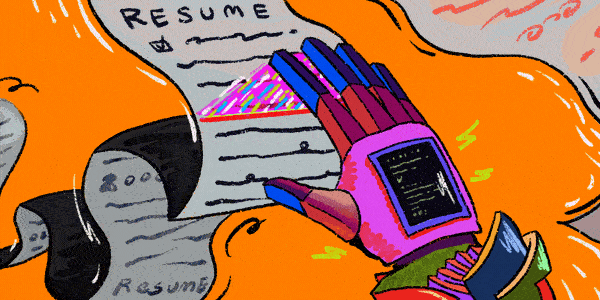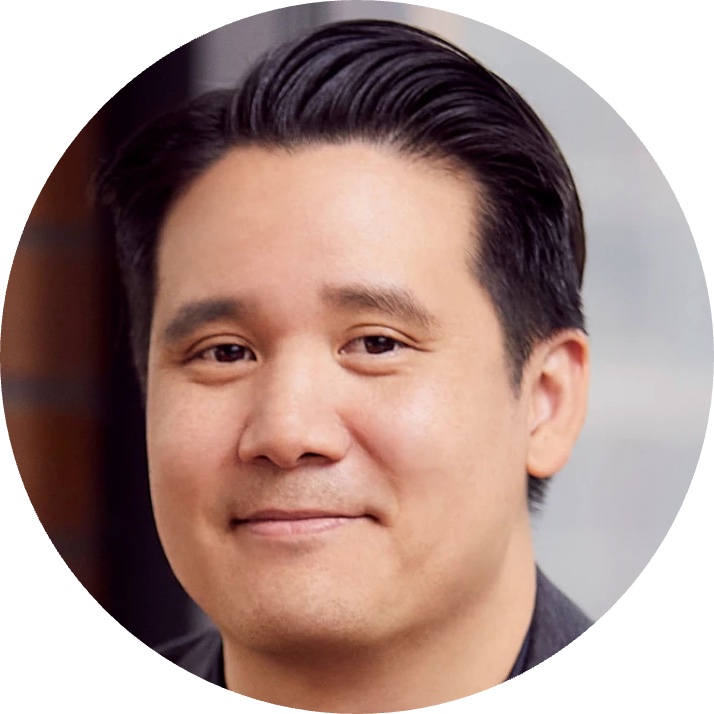This article is part of WorkLife’s special edition, which examines how the jobs and careers of Generation Z professionals will be reshaped and evolve in the AI-informed era. More from the series →
We all know what it’s like to be interviewed for a job by a human. The experience conjures a range of emotions — nervousness, fear of the dreaded “mind blank,” imposter syndrome, perhaps even boredom, right through to excitement and exhilaration.
Guidance on coping mechanisms for how to blunt these interview “symptoms” are now widely accessible online. But what about if the interviewer is a human-like AI that’s programmed to detect whether a highly skilled candidate actually has the right attitude, level of excitement and desire to be part of the company? That’s much harder to fool. And it’s a reality that isn’t so far off.
That’s why top talent recruiters are urging young professionals not to neglect the development of their soft skills – particularly Gen Z, who may be digitally savvy but not necessarily AI savvy. Nor are they necessarily workplace savvy either, having had fewer in-person interactions than previous generations. Because in time, the AI will be able to detect both hard and soft skills right off the bat. “The [artificial] intelligence is going to be able to understand if you’re excited about the job,” said Kim Gottschalk, head of innovation at talent solutions provider LHH, part of the Adecco Group.
Just how the first versions of AI video interview software pick up voice inflections and facial expressions, the tech will be able to determine which candidate has the most natural zest by comparing the soft skills of all interviewees, with results returned within minutes. (Swedish candidate screening robot Tengai is an early example of how humanized AI is being tested.)
These softer skills, like who seems most excited to join the company, are critical when it comes to filling roles, stressed Gottschalk. “Employers look for passion and eagerness and those soft skills are also going to be detected by artificial intelligence. It’s not being used in a widespread fashion right now. And it’s certainly not accurate. But every day it’s getting better and better and it will be a factor within interviews in the future. And that’s why the soft skills will still be important,” she said.
Naturally, widespread uptake of that setup will take more time — largely because AI has kinks to work out first, like biased algorithms. And while human bias has always been a part of interviewing processes — whether consciously or unconsciously — if applied to AI, that can skew the data.
In fact it can skew it so much, that some tech hiring platforms warn managers and recruiters not to use AI at this stage of the hiring process altogether. “We believe that generative AI can do a bunch of things really well, like summarization, content generation and translation. But what is really scary is decision making,” said Henry Tsai, vp of product and design at hiring software firm Greenhouse.
“If you [as a hiring manager] said, ‘I just have these five criteria, then I want it to find every resume that has those five criteria,’ you’re essentially allowing it to make a decision on who you want to be at the end of the funnel. And at this stage, we believe that introduces high amounts of bias,” he added. “I don’t think we’re ready for decision making at whole scale without introducing huge amounts of bias — or traditional bias that’s already occurred because that’s what it’s learning on for the outcomes that we’re trying to derive,” added Tsai.
AI hype aside, employers have used some level of automation and machine learning in hiring processes for the last decade. Mostly that’s been around tech that helps match the best candidates for a role within a business. By using such tools employers have been able to widen the net of potential candidates by having tech scour the internet for the right skills and experience. The tech will then send automated messages to these candidates, as directed by the human hirer, throughout the hiring process.
The time savings alone have been valuable for hiring managers. Fast forward to today, AI hiring also handles dynamic calendar scheduling. So if a recruiter needs to speak with a candidate in another time zone, the AI will set up the meeting at a time which suits both. If one side needs to change the slot, the AI reschedules it automatically. For most time-pressed professionals, such dynamic calendar matching is a gift.
Cliff Jurkiewicz, vp of global strategy for Phenom, an AI-powered global HR tech platform, has done the math on what that means for HR and other hiring professionals.
“Typically, [as a recruiter] you’re going to interview four to eight people. And two to four people in your organization will do those interviews. It takes about eight to 10 minutes to align calendars of individuals, let alone groups of people. So for one person interviewing for a role, this can save the organization an hour of time. Now imagine a recruiter who’s managing 50 job requisitions or 100 job requisitions, which is pretty standard, and scheduling 30 interviews a week, you’ve literally just saved that person 30 to 40 hours. So it’s the level of automation and and its ability to determine what good looks like is the huge change [in how AI in hiring has evolved].”
And no, that freeing up of time doesn’t lead to job losses, it opens up the head space to have more thorough, intentional communications with final candidates, stressed Jurkiewicz. “They can really focus their time on digging deep into the candidates’ profiles, making sure they’re nurtured, engaged and communicated with. It frees them up to really engage the candidate — or the internal employee if they’re doing recruiting internally — and that creates a far better-connected experience and removes the black hole of recruiting.”
This so-called black hole is a common burden any corporate HR or recruiter will have experienced: potentially missing out on top talent simply because they struggle to wade through a mountain of applications. “If you’re a recruiter with 1,000 applicants, there is no human being who can adequately and in an unbiased way, review all of them and then pick who’s a good fit for an interview,” added Jurkiewicz.
This efficiency within the hiring process also means that the candidate experience is better. And that’s critical particularly for Gen Z professionals. “There is this expectation of personalization [among Gen Z workers] and around responsiveness,” said Lehua Stonebraker, svp of people at talent acquisition software firm SmartRecruiters. “That may mean not wanting to sit around waiting for a week after an interview, before finding out what’s the next stage. There’s an expectation around feedback loop,” she added.
When Stonebraker has interviewed candidates for roles within Smartrecruiters, the typical process is to phone candidates that didn’t make it to the offer stage, to give feedback. Having the AI handle that or helping to churn out interview notes in a meaningful way so that recruiters can provide succinct, personalized feedback, while also assisting in technical assessments to highlight any skills gaps, would all be useful to the recruiter, stressed Stonebraker.
“I think AI can play a part in all of those pieces. It’s just a matter of where do you start to chip away at prioritizing those efforts, making sure that it fits into the business needs and not getting so distracted playing with all the shiny new tools, but making them amplify all of the things that are meaningful for business results,” she said.
This overall improved treatment of candidates, made possible by AI tech, goes a long way with Generation Z in particular. What values an employer has is a vital ingredient in attracting the right talent from this age group. And AI tech blunders, that may signal an employer has been sloppy about integrating the right tech to its hiring processes ethically, can become visible to candidates. Not only that, but it may backfire on an employer once AI hiring regulations are more clearly cemented.
“Everyone talks about Generation Z as being the most diverse, the most savvy digitally, but they’re also the most ethically conscious generation that we have ever seen,” said Jonathan Sears, global technology leader for EY’s people advisory services practice, which analyzes Gen Z sentiment toward AI and the workplace in reports like the 2023 EY Work Reimagined survey. “There are now regulations on the book [AI law 144 in NYC, AI Bill of Rights in California and EU AI Act] that determine what role AI can play in certain elements of a hiring process or in certain ways to ensure that it is governed and there is ethical AI at the table. And I think that expectation from Gen Z will help continue to drive how this adopts and forms across a number of organizations.”
Seven seconds. That’s the average length of time a recruiter will spend glancing at a resume, according to resume and career strategist Julia Toothacre. That means that whether you use ChatGPT or not, the more buttoned-up a resume can be, the better.
Today, candidates need to be savvy about how to ensure their profiles are being found by AI systems used by recruiters. That means ensuring their social media profiles include core keywords that may be looked for in relation to certain roles, likewise their resumes and cover letters also need to be tailored as such, according to Gottschalk.
More are using tools like ChatGPT to help with that. Almost half (45%) of candidates are using generative AI to help write resumes, cover letters (41%), answer job application questions (36%), help prepare for interviews (38%), help with skills testing as part of the interview process (34%) and write or help with a job interview assessment (25%), according to recent research from hiring software firm Greenhouse, which surveyed 2,700 candidates across the U.S., U.K., Germany and Ireland, and 100 HR professionals.
But if everyone uses those tools, and knows how to optimize resumes so they get picked up by the most suitable employers for them, is that making it harder to stand out?
For Greenhouse’s Tsai, that all comes down to the prompts being used. If everyone uses the same, generic prompts, without having experimented or spent time figuring out different prompts to create the most tailored, well-thought-out response, then resumes will indeed sound generic, he stressed. “The differentiation will still exist because of who’s writing the prompt, how they ask the questions, and ultimately how much they interact with the model to find their own voice,” he said.
When it comes to AI, people feel pressured to be more adept at using it for work, than they really are. Just under half (45%) of 1,000 people recently polled by ResumeBuilder, admitted they exaggerated their skills with AI during the hiring process, and 32% said they lied about their AI skills on resumes. And while this survey didn’t poll people in the Gen Z age group, Toothacre believes it’s critical that employers don’t presume this generation knows it all when it comes to AI, but that they will expect and need training.
“Their [Gen Z] level of technology is not as high as people perceive them to be.” she (whosaid. During the summer, Toothacre gave career-coaching classes to Gen Zers about to start their first jobs. “I remember a student saying to me, ‘I’m expected to understand how to run Excel, but nobody’s ever taught me how to run Excel.’ I think their ability to find answers and to search the internet and figure it out that way, is much higher. But I think there’s this expectation of ‘oh, you understand social media, you understand Excel, you understand AI, you understand basic technology, and that’s not necessarily the case for them. So I think some expectations have to be curved.”



